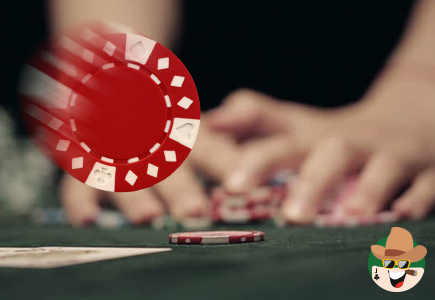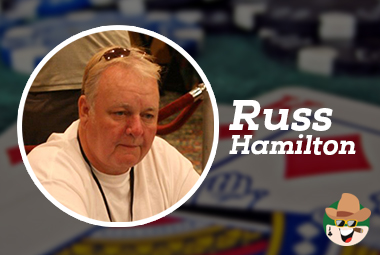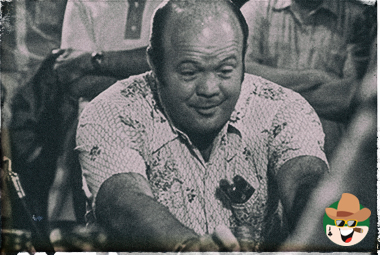
I have a question for you. Would you purposely turn your cards up and let your opponents see what you are holding before you push out your money?

I already know your answer. It's no, of course. Yet there are many poker players who do precisely that every time they sit down at a poker table. They do it through tells, the way they hold their cards, and even in how they bet.
Before you inform me, 'I don't have any tells,' I beg to disagree with you. Anybody can have a tell --- even some of the best players who ever played the game.
I remember watching the World Series of Poker played on television. Russ Hamilton, one of the best poker players in the business, was in the hand. Viewers could see his cards. Hamilton had an ace-high flush, a lock hand. He looked away from the table and made a big bet, humming to himself. Somebody called and Hamilton turned over the winner, scooping the pot.
A few hands later, Hamilton was in another big pot. This time the under the table camera revealed he had a busted flush. The other players, one of whom had top pair, checked to him and Hamilton jiggled his chips for a while -- and then he bet.
Only this time instead of staring away from the table, he glared at the other players defiantly. They both folded and Hamilton took the pot.
An alert player would have caught that tell and known Hamilton was on a bluff.
I have sat next to players who would tilt their cards so I could read them. They must have had poor side vision, but they showed me their cards on nearly every hand. All I had to do was sit normally in my chair and I knew exactly what they were betting on.
Let's take a player who is bouncing his leg up and down. You know he came to play and is anxious to get into action. You would not want to bluff such a player because he is probably, at least for the moment, incapable of being bluffed.
Or you could observe a player's neck. The pulse in the neck is visible on quite a few people. In a stress situation, it is impossible for a person to control his heartbeat. If you see a person's neck throbbing away, you realize he is excited -- and usually it's because he is attempting a bluff.
Some professional players, when considering whether to call or raise, might ask another player, 'How deep are you.' That question is posed for two reasons: to find out that player's number of chips and to establish a tell, which could happen by what a person says and how he says it.
Doyle Brunson spotted a tell on the redneck gambler Puggy Pearson once. Each time Puggy would put his chips in his rack and bet them, he was on a bluff. Puggy did this for months until a friend tipped him off on what he was doing. He stopped the practice quickly.

According to Doyle, Amarillo Slim tipped him off that he was counting his chips off and betting them when he had a made hand. But when Brunson was bluffing, he would just push in the chips without counting them. This was another practice Doyle discontinued.
Of course, an aware poker player might practice such a tell to mislead the opposition, which is another thing poker players must consider.
The amount of money a person raises may also give away his hand. A person might raise $100 with an ace-10, he may raise $125 with an ace-jack, or $150 with an ace-king. That is why it pays to be observant between hands.
Watch a person's mannerisms and learn. Poker is a game of people, not just cards.
Just remember that every person is an individual and each of us reacts differently to a situation, especially when stress is involved. Take your time to study your fellow players. What you discover may amaze and reward you, and that is a poker fact.
Work hard to conceal your tells. From time to time, change your playing style, so you don't give away your hands. Change the way and the amounts of your raises. And talk to the other players between hands. It tends to throw off their game and keeps you in the driver's seat.
You need to watch the other players because you can be sure of one thing: if they have any poker playing ability at all, they are certainly watching you.
Author: Geno Lawrenzi Jr.
(Geno Lawrenzi Jr. is an international journalist, magazine author and ghostwriter and poker player who lives in Phoenx, AZ. He has published 2,000 articles in 50 magazines and 125 newspapers. If you want to share a gambling story or book idea with him, send an email to glawrenzi@gmail.com ).





